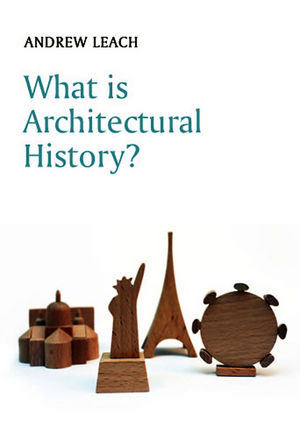What is Architectural History?ISBN: 978-0-7456-4456-1
Hardcover
196 pages
July 2010, Polity
 This is a Print-on-Demand title. It will be printed specifically to fill your order. Please allow an additional 10-15 days delivery time. The book is not returnable.
Other Available Formats: Paperback
|
||||||
Architectural Research Quarterly
"Though the book is aimed primarily at students in schools of
architecture and departments of art history, the clarity of Leach's
prose and his penetrating syntheses make the book useful even for a
more senior audience."
Journal of Architectural Education
"A timely arrival in the wake of claims for architecture's
'critical' and 'post-critical' status, this concise little book
will prove a valuable compass to the on-going debates over the
nature and future of architectural history. In a series of catholic
cross-sections, Leach offers an erudite and even-handed account of
the main lines of the discipline's (often divergent) developments
even as he asks difficult questions regarding architectural
historians' most basic assumptions."
John Harwood, Oberlin College
"In this remarkable book, Andrew Leach makes the complex topic
of historical knowledge in architecture accessible to a wide
audience. He examines the discipline from multiple perspectives,
considering the shifts in theoretical and methodological positions
and situating them in their historic contexts. He reveals the
richness of the field by highlighting its strategies, ambiguities,
engagements with other disciplines, negotiations between polarities
(high culture/low culture and the general /the particular), and
relationship to architectural practice. Through a careful analysis
of key texts, Leach leads the reader to the ultimate question of
the meaning of architectural history today."
Zeynip Celik, New Jersey Institute of Technology
"This is a very welcome addition to the sparsely populated field
of studies on the historiography of architectural history. It is
written in a clear, engaging and jargon-free language, but offers
advanced undergraduate and graduate students an intellectually very
sophisticated grounding in the origins and development of
architectural history. By defining architectural history not as a
purely academic pursuit, but as a cultural practice taking as its
subject the multiple cultural agencies architecture exercises, it
solidly places writing architectural history at the centre of
today's reflection on culture."
Caroline van Eck, Leiden University



